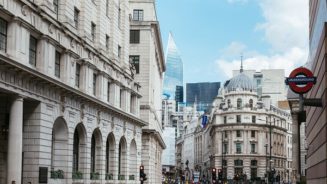It has been a tempestuous start to 2016 but Nick Georgiadis believes the volatility has obscured a more positive pick-up in economic growth. If anything, he suggests, the market is failing to appreciate the risks of inflation. This may be the key risk facing markets at the moment, which are stubbornly unprepared for any meaningful rise in interest rates.
Georgiadis feels the risks in the global economy have been overstated. He says: “While there are potential risks to the ongoing recovery in developed economies in the west, many of the market’s concerns at the start of the year were Asia-focused, and the extent to which they feed into western economies is debatable. We are not sure the contagion is that great.
”The group’s central premise is that the global economy is growing at a rate of 2-2.5%. Georgiadis sees this is a far more sustainable level of growth than that seen before the global economic crisis.
He adds: “We expect the current level of growth to continue; we definitely don’t subscribe to the view we are about to plunge into recession.”
"We expect the current level of growth to continue. We definitely don't subscribe to the view we are about to plunge into recession."
However, this brings its own problems. In particular, if growth is to remain relatively buoyant, central bankers may be underestimating the likely pick-up in inflation, which could in turn mean they are behind the curve in raising rates. Georgiadis sees this as potentially disruptive for financial markets.
Upwardly mobile
“We believe growth will go on for a while yet and that the eurozone is gathering momentum. We are seeing some stabilisation in China. We are not sure markets have factored in the stimulus from the drop in commodities. There has been a lot of focus on the negative side, but have we seen the stimulus to consumers coming through?
“The key risk is that the central banks are underestimating the extent to which core inflation is building. Once the effect of higher commodity prices come through and wage pressures start to emerge, it will be reflected in RPI numbers. Markets are still not factoring in a sharper rise in interest rates.
”Across the group’s portfolios, the most obvious manifestation of this view is a low weighting to fixed income. In particular, Georgiadis is underweight conventional government debt, believing UK 10-year gilts, at 1.4%, represent poor value. He believes if wage or consumer inflation starts to pick up, these areas will start to look very exposed.
The group has been holding index-linked bonds, however, believing inflation expectations to be generally underpriced in the markets. To boost the yield of client portfolios, he has some exposure to high-yield corporate debt, but this is focused on shorter-duration bonds, with lower sensitivity to interest rates.
Georgiadis has taken down the equity exposure the group’s portfolios. While the sell off at the start of the year provided some interesting opportunities, the subsequent rally has left valuations looking more stretched, pushing the group’s overall view from positive to neutral.
Reversal of fortune
Georgiadis is also very specific on the areas within equity markets where he wants to take risk. He points out that some of the trends that worked well last year have reversed this year, and fund managers have been caught out.
He says: “For the time being, we will be sticking with the safer, large cap multinationals.
This has the added bonus of being one of the few areas yet to provide a decent yield. It also helps the group address the risks associated with a potential Brexit. Large caps tend to have greater overseas earnings and are therefore less exposed to any weakness in sterling associated with the EU referendum.
However, he is not trying to take any extreme positions ahead of the UK vote, believing it is too difficult to call either way. Nevertheless, he is aware he may have to be ‘fleet of foot’ after the vote.




